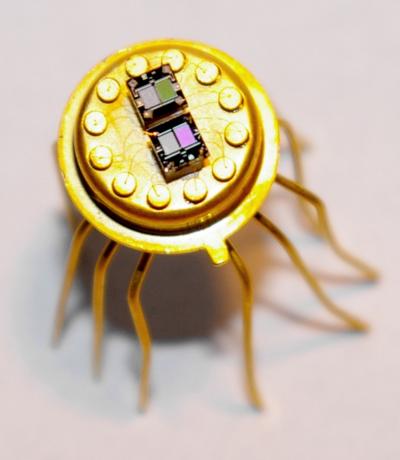New technology that uses volatile components to detect when pineapple is ripe and when it can be delivered to the supermarket may help. The system has been developed by researchers at the Fraunhofer Institutes for Molecular Biology and Applied Ecology IME in Schmallenberg and for Physical Measurement Techniques IPM in Freiburg to check gas emissions, such as in a warehouse.

Customers want fresh food, which means neither unripe nor spoiled. A new system based on metal oxide sensors could check the safety and quality of foods - such as how ripe that pineapple really is. Credit: Fraunhofer IPM
"We have brought together various technologies based on the use of metal oxide sensors, similar to those installed in cars, for example, to close ventilation vents when driving through a tunnel. Researchers at IPM have developed these sensors further. If a gas flows over the sensor, at temperatures of 300 to 400°C, it will burn at the point of contact. The subsequent exchange of electrons changes the electrical conductivity," explains Dr. Mark Bücking, Head of Department at IME. "Before the gas reaches these sensors, it has to go through a separation column with polymers. Certain substances are already filtered out here."
A prototype of the analysis equipment already exists and initial tests were promising – the system measures the volatile substances just as sensitively as conventional equipment used in food laboratories. In a further step the researchers want to optimize the system and adapt it to specific problems. Bücking reckons that the equipment could come onto the market at a four-digit euro price.
The researchers are also investigating whether the equipment could be used to test pork. Male pigs produce hormones and certain odorous substances necessary for reproduction, nice enough for lady pigs but unpleasant to human noses.
Most pigs are slaughtered well before sexual maturity, before any odorous substances have formed in the majority of pigs, but some boars could produce the odorous substances prematurely and spoil the meat so all boars are castrated when they are young. Castration may not be necessary in the future if the pork could be tested on-line before it is packaged.






Comments